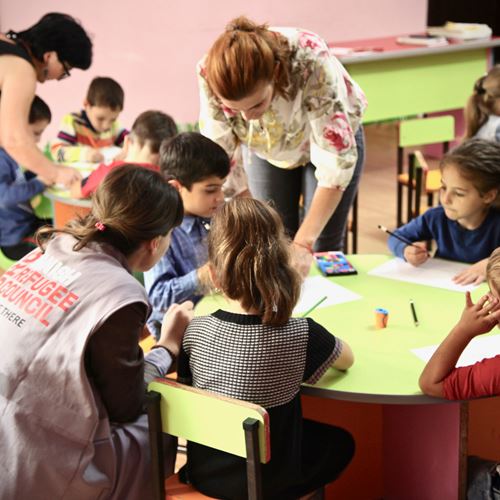
South Caucasus
DRC has been operational in the South Caucasus since 1999, with support to internally displaced persons at the epicenter of DRC interventions. Addressing a multitude of vulnerabilities in a responsible way and engaging in poverty reduction remains central to the work of DRC in the region. We therefore engage in a range of activities responding to urgent needs, and work to strengthen the resilience of people affected by both new and protracted displacement in South Caucasus.

Displacement trends
Source: | UNHCR
Displacement Trends
Definitions
EDPs: Refugees under UNHCR’s mandate
IDPs: Internally displaced persons
Asylum seekers: People whose claims for refugee status have not yet been determined
Stateless: People not considered as nationals by any State
HST: People living in Host Communities
OIP: Others in need of International Protection
OOC: Others of Concern
Forecast
DRC forecasts are based on a machine learning tool that has been developed to predict forced displacement (IDPs, refugees and asylum seekers) at the national level 1-3 years into the future.
Why we are there
DRC’s presence in the South Caucasus is unique, with access granted to vulnerable populations including several groups of internally displaced.
Through its presence in several areas of the South Caucasus where humanitarian and socio-economic needs related to displacement are widespread, DRC provides a range of services and assistance to meet these needs and strengthen resilience among the vulnerable and conflict-affected populations.
What we do
Activities that positively impact the lives and livelihoods of internally displaced persons remain a focus of DRC in South Caucasus. To support the integration of internally displaced, DRC works within five areas:
- Economic Recovery
- Access to Social Services
- Technical Assistance
- Shelter and Housing
- Small-and medium Scale Infrastructure projects
At each level of decision-making (central, regional, municipal, district or village/community), DRC in the South Caucasus continuously engages to advocate for the effective protection of local populations of concern, and to promote the rights of the displaced.
Working in collaboration with


World Vision


Deutsche Gesellshaft für Internationale Zusammenarbeit

Kreditanstalt für Wiederaufbau


